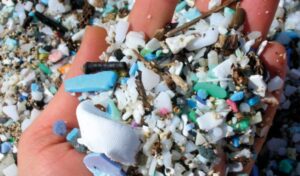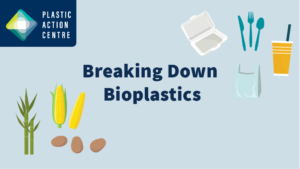- Regulatory Tools
- Circular Economy
- Government
- Government Policy
- Labelling
- Recycling
- Policy
- Strategy and Policy
- Take Action
- National
Recycling for a cause: Milk bags transformed into mattresses for Moncton’s homeless
Milk-bags are being reused and woven into mattresses for the homeless by volunteers at a Moncton soup kitchen.
Full Article
Author: Nicole Bogart, with a report from CTV Atlantic’s Kate Walker
Volunteers at a Moncton soup kitchen have come up with a creative way to reduce waste and serve the community’s homeless population: milk-bag mattresses.
Using patterns provided by Toronto-based non-profit MILKBAGSunlimited, volunteers at Karing Kitchen have been busy weaving together milk bags to create the waterproof, reusable mattress pads for those in need.
“The milk bags have to be cut into half and then they’re knotted together in lengths of four, and strung between nails on a jig. Then it’s just like a loom weaving in and out,” Karing Kitchen manager Bruce Lawson told CTV News Atlantic.
The idea was first conceived by Toronto-area woman Angela Kesthely following the devastating 2010 earthquake in Haiti. Because the plastic outer shells of four-litre milk bags do not disintegrate in landfills, Kesthely discovered that they stand up well as mattress, bed covers for hospitals, and even slippers.
“The beauty of these things is, because they’re plastic, they last forever,” said Lawson. “They are mildew resistant, they’re easily washed, they’re UV resistant and fungal resistant.”
Milk bags are cut into strips and knotted together in lengths of four before they are looped and fit onto a frame. But creating the mattresses is no quick feat – it takes volunteers up to seven hours and up to 500 milk bags to create one mat.
Although Lawson said the soup kitchen needs more volunteers to keep up production of the milk bag mattresses, the team’s efforts have not gone unnoticed.
“Many hands make life work,” said volunteer Daniel McDonald.



